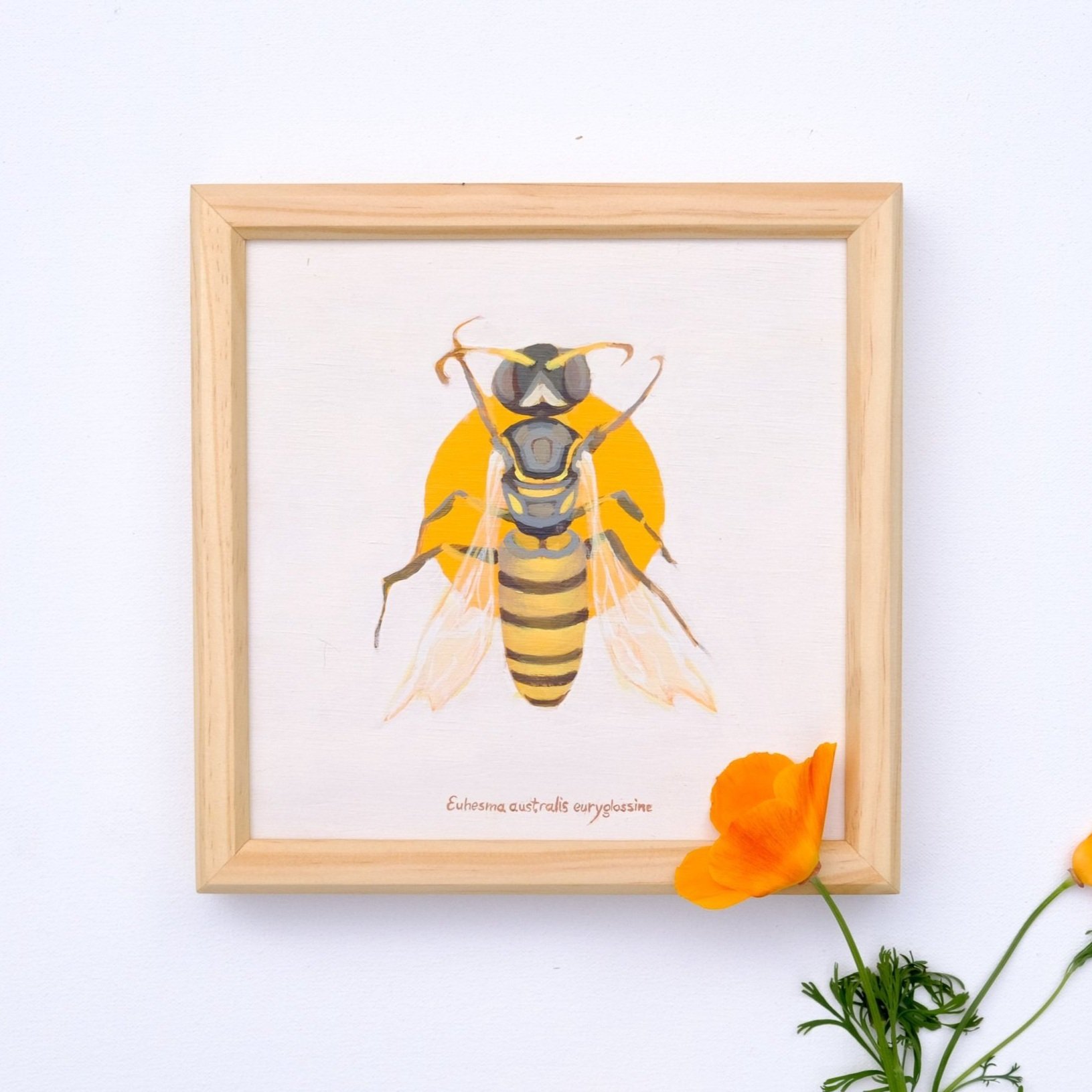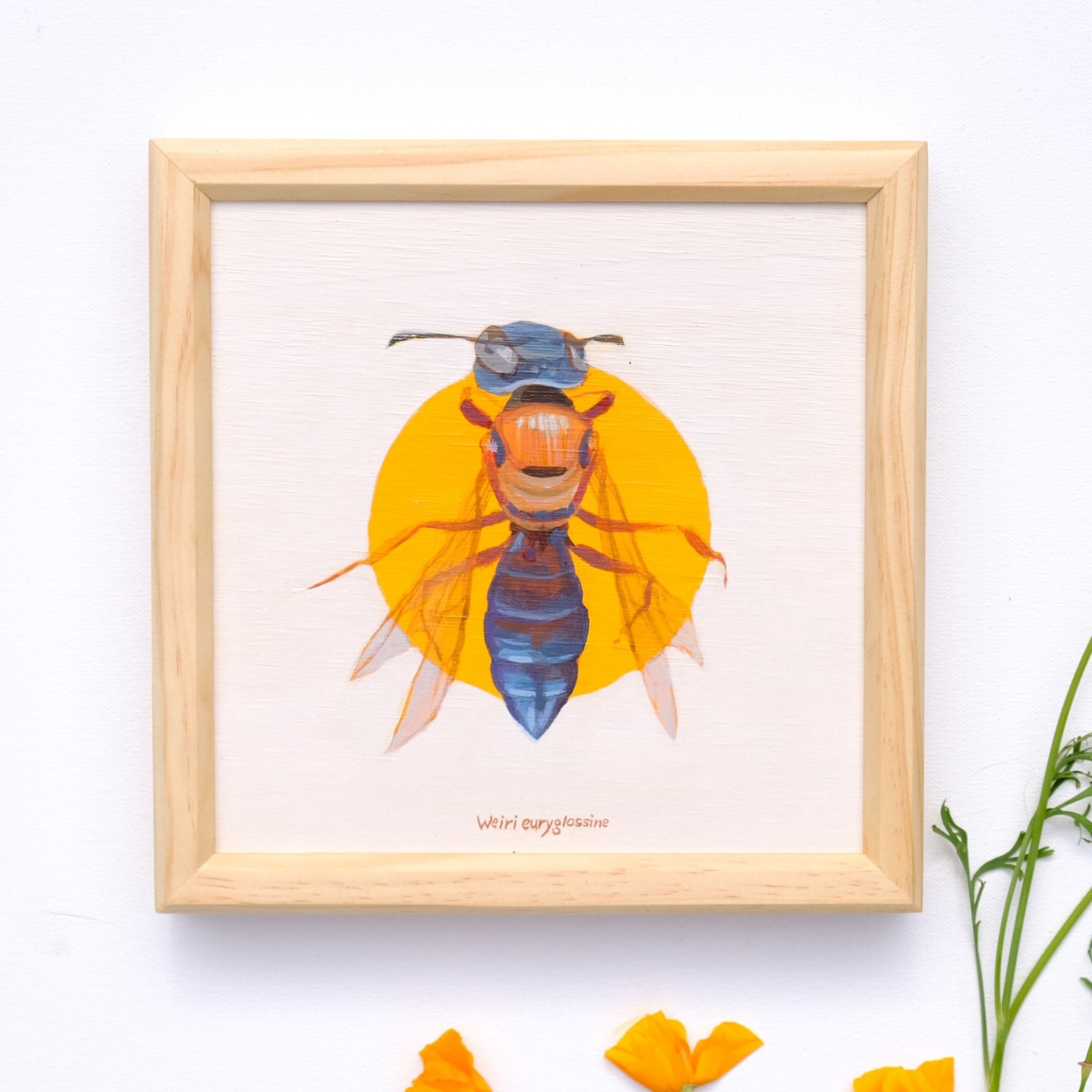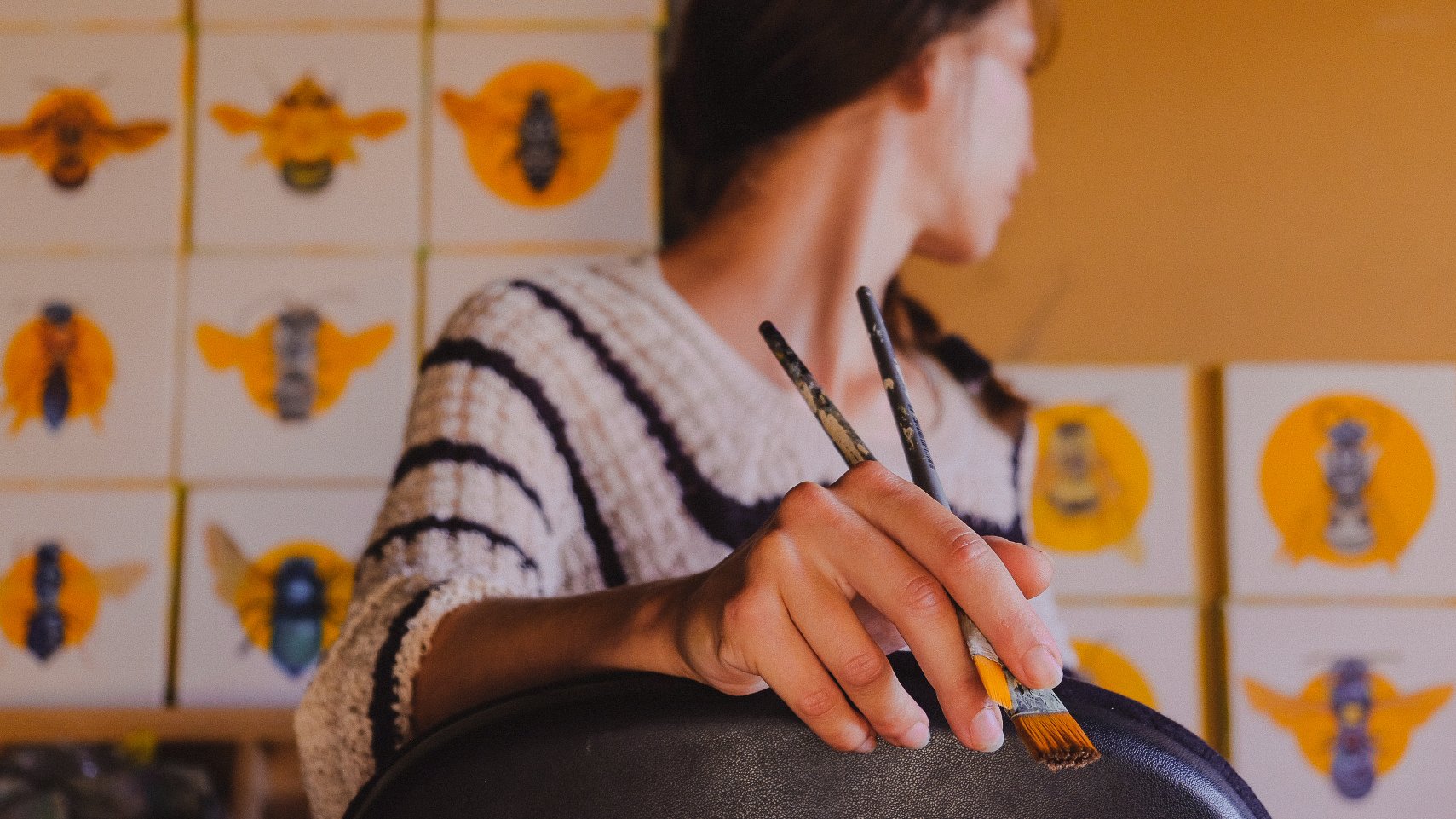We are saving
the wrong bees.
A series of 15 paintings, portraying Australian wild bees, with the goal to move the spotlight from the honey bee and show the diversity of the species.
With huge percentage of our insects dying out we need to make an effort to help preserve our native pollinators. That starts with acknowledging their role and existence.
Why are we saving the wrong bee?
Despite millions of hives, people are still worried about honeybees. Ask any number of people on the street, and most of them will claim honeybees are disappearing. Wrong!




The problem is that most of us confuse bees with honeybees, but in reality there are over 20,000 different species of wild bees!
Australia has over 1500 native bee species. This is where for the first time I saw a bee, that was not a honey bee. I remember it very well, metallic green, big and shiny.
This experience was the seed for this project and my curiosity was the driving force behind it.
After doing my research about wild bees I quickly understood - I don’t know enough about them, and probably most people too.
So why not educate with art.
To express my fascination with the diversity of shape and colour, I have purposefully selected bees which have unexpected patterns and are visually challenging our perception of the honey bee as the only one.
From red to blue, from shiny to furry, I’ve tried to give each be a distinct character while still trying to be anatomically accurate.
In an international study it was shown that wild pollinators, such as native bees, improved pollination efficiency by greatly increasing fruit set when compared to crops that were pollinated just by European honey bees. The best pollination outcomes were achieved when both European honey bees and native pollinators, such as native bees, moths, flies ect.












I believe it’s not only the big agricultural companies and farmers that need to do conservation work.
We can do a lot around our homes as well. Leaving some native plants, or perhaps planting some new ones. Creating some breeding spots for wild bees, by leaving some dead logs around.
But most important, there is no need for a beehive in your backyard! We have enough already.




